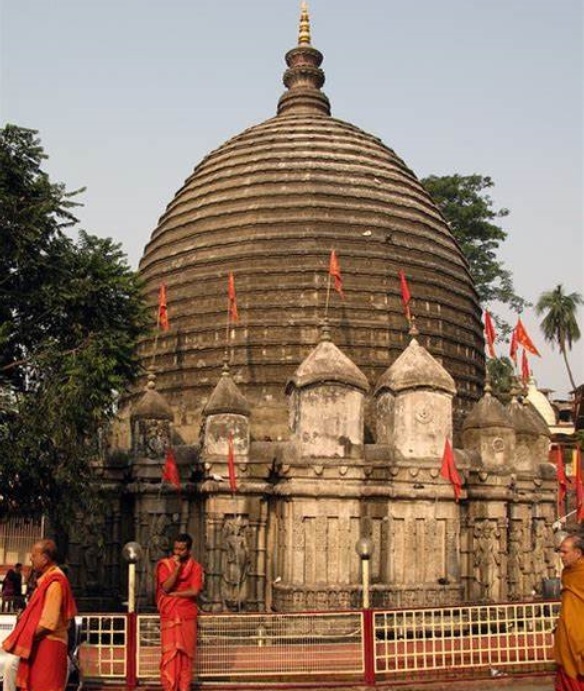Bakhtiyar Khilji was a Islamic invader and commander of Turkish Muslim origin. He had carried out several military expeditions in eastern part of India. He had destroyed Nalanda University and burnt its library having several millions of manuscripts. He burnt alive thousands of priests and scholars to implant Islam in the region. He had further destroyed Vikarmshila university and burnt its library too. After looting and plundering some other kingdom’s in eastern part of India, in 1205 CE Bakhtiyar Khilji set out the expedition to ‘Kamprupa’ in modern Assam with an army of 12,000 horsemen.
That time Kamrup was ruled by ruled by the King ‘Prithu’ who was from the dynasty believed to be from the lineage of ‘Narkasur’. They were the devotees of Goddess Kamtashwari a form of Goddess Durga. Before crossing the border of Kamrup kingdom, Bakhtiyar Khilji succeeded in converting a local chieftain to Islam who adopted a new name Ali. Later, Ali helped Bakhitiyar Khilji’s army to march amid hilly terrain and dense forests and reach densely populated kingdom of Kamrup. Bakhtiyar Khilji’s army started loot and plundering of villages at border. In that region and neighbouring areas 3 tribes, Bodo, Keot, and Koch Rajbongshi were also residing. Sensing the intensity of the attack they also joined hands with Kamrupi army. Their combined army attacked Bakhtiyar Khilji, and the great valour of combined army of Kamrup soldiers and tribals inflicted heavy losses to Bakhtiyar Khilji’s army. Many soldiers of Turkish Muslim were killed on the first day itself. Sensing a crushing defeat, Bakhityar Khilji along with remaining army fled in the same night. But the large army of King Prithu further reinforced by the well trained cavalry force of neighbouring Karampattan decimated Turkish Muslim army of Bakhityar Khilji. Most of his soldiers were killed or captured. He fled with his hundreds of soldiers but the bridge they had crossed to reach Kamrup had been damaged and the King Prithu’s army was chasing them. Left with no choice he along with his remaining soldiers were forced to swim for crossing the river. The strong current of the river led to watery grave of remaining soldiers. He only managed to survive with a handful soldiers to return Bengal defeated, humiliated, and dejected.
